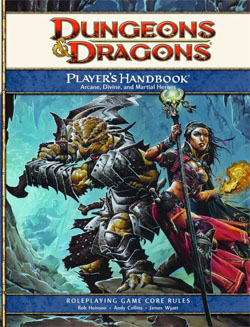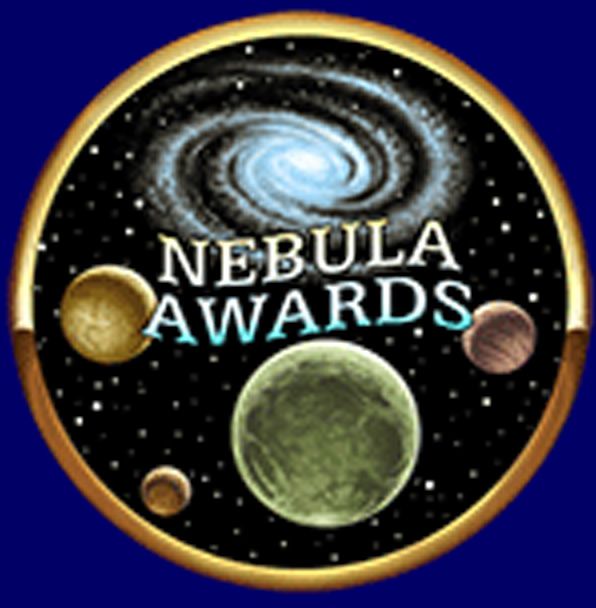And if you liked the New Weird…
I just reviewed Jeff and Ann Vandermeer’s The New Weird anthology, and if you’re interested in varying offshoots and antecedents, you might want to check out my reviews of:
Should be enough homework for today.
I just reviewed Jeff and Ann Vandermeer’s The New Weird anthology, and if you’re interested in varying offshoots and antecedents, you might want to check out my reviews of:
Should be enough homework for today.
It might seem weird that people once got worked up about this stuff (and, maybe they still do and I’m just not paying that much attention anymore), but about five years or so ago (that’s 35 in dog years and paleolithic ancient history in Internet reckoning), people were getting worked up about “The New Weird,” whether it was a bona fide genre subcategory and/or movement, who its practitioners were, and who the hell cared. At least it was better than arguing about whether cyberpunk was dead and whether slipstream was literary science fiction, or literary fiction that stole from science fiction.
Now, along come the Vandermeers — both of whom have dogs in this hunt, Ann as editor of the presumably now defunct Silver Web magazine and currently at the helm of Weird Tales and Jeff as the author of City of Saints and Madmen, among other works, associated with The New Weird milieu and, if recollection serves, one of those who at the time thought the whole discussion about the classification kind of pointless — with The New Weird anthology. Theirs is an interesting approach. This is more than a compendium of stories that tend to share a theme; rather, it is a kind of snapshot of a fixed era (with one exception) of excitement — possibly mixed with some confusion — of authors breaking ground from traditional fantasy and horror and mixing it up in very intriguing, though sometimes incomprehensible ways, whose time, the editors seem to suggest, has past. “New Weird is dead. Long Live the Next Weird.”
…

![]() This week I turned my eagle eye toward the Nebula-nominated novellas, and when that didn’t work I actually read them.
This week I turned my eagle eye toward the Nebula-nominated novellas, and when that didn’t work I actually read them.
My thoughts (or whatever you want to call them) below the jump. First a general observation that, again, may not be terribly original: the novella ought to be the perfect length for an sf/f story. It’s long enough to admit of a fair amount of world-building, while also giving time to unfold a few characters and tell a story. I’m not sure most of the nominees exploited the form to its full advantage; several of these stories don’t really have enough content to justify their length and might have been more effective if they’d been told with more economy.
On the other hand, I’d say that only one of them suffers from the “genre-lite” syndrome I referred to in my last post, so maybe I was generalizing from too small a sample. In short, Hic Spatiales Calamarii Loquentes (“Here there be talking space squids”).
Having written five novels beyond at least the first draft stage, I’ve noticed a trend. In each of them, with a single exception, the original first chapter either got cut, moved to another berth in the novel, or got re-tooled so extensively that it was no longer recognizable.
I didn’t set out in any of these cases to follow the adage about “cutting the first three chapters.” I find most writing maxims and sayings cute slices of wit, occasionally instructive, but disposable on a case-by-case basis. But I seem to have followed this one with lock-step dedication without even thinking about it. Most other writers I’ve talked to have noticed a similar machete-wielding brutality toward their early chapters when the time comes to dig into the second draft.
Why does this seem to happen so often? After all, first chapters usually are the section of the book that writers have the most solidly defined in their heads before they sit down to pound out that first draft. Even if the writer doesn’t work from an outline (I do, but that’s a subject for another post) he or she often has the full “move clip” version of that awesome opening all queued up and ready to play. “I’ve got this terrific opening,” the writer likes to say to friends. “I’ve even composed the perfect first line.” Some people hatch an entire novel from thinking of one single eye-grabbing opening sentence.
And yet, this first chapter often ends up scrapped, re-located, refurbished, or replaced with a Winnie-the-Pooh ride.
Do you think the undead are more interesting when:
a) beautiful
b) grotesque
c) both
Can’t do a real poll here, unfortunately.
My parents owned a book from the first King Tut exhibit to come to the US that held a fearful fascination for me. As a kid I loved reading about the discovery of the tomb and the contents and the strange family of Akhenaten, the heretic, and oh, those beautiful gods and divine animals made of gold, lapis, and cornelian… but I had to turn the pages very carefully to avoid the photo of Ay’s mummy’s head, which gave me nightmares every time my gaze fell on it.
In graduate school, part of the core curriculum was a human osteology practicum. Among other things we had to learn how to distinguish human from animal bone fragments. That and other physical anthropology classes were held in “the bone lab,” where shelves of skulls gazed down from three sides and a human brain sat behind you on the lab bench in a covered beaker of formaldehyde. Along the bench were drawers labeled “Quakers,” mixed fragments from an old Philadelphia graveyard that had been removed (IIRC) from one of the downtown parks. It was all pretty creepy at first, but I got desensitized. One of my classmates took bones home sometimes to study. I mean, a freakin’ human femur sticking out of his book bag, and the guards never said anything.
Then, a few years later, I started working in the Penn Museum’s collections. Between American ethnographic storage (in the basement of the now-old new wing), and the bulk of American archaeological storage (in a sub-basement that could only be reached from an elevator in the old building) lay the Mummy Corridor. …
Well, I’m now about halfway through Neal Stepehenson’s Anathem and, while I’m enjoying it, the going is slow. When I was in graduate school, my 18th century British Lit class had as required reading a 1500 page epistolary novel by Samuel Richardson called Clarissa which recounts the seduction, rape and subsequent suffering of said title character. Correctly suspecting that perhaps not everyone would read it thoroughly, the professor assigned the students sections that we would each summarize and present to the class as we worked through the reading. My section was some 500 pages into the story, and I remember starting my presentation by saying, “I was fortunate to be assigned the part of the book where something actually starts to happen.” Which is sort of how I feel about Anathem about now.
I’m not overly obsessive, let alone concerned, about world-building. I don’t look at the maps, or the etymology of a sword’s name, or get overly concerned about any of that stuff. I don’t get upset if there’s some inconsistency in the imagined world; hell, the real world is inconsistent enough for my taste. I’m more interested in metaphor, or even just whether it’s a good read. In Antathem, Stephenson is poking fun at the world-building fetish (I think) but, at the same time, is a practicing adherent. A dangerous thing for an author known to never hesitate to let the reader just how much he knows.
Certain sections of the book begin with definitions of the Earth-like society’s terms, sociological classifications, and historical events. Here’s Stephenson reading these definitions. If you like this sort of thing, you’ll love the book for this alone.
“Beginning with you, Phoebus, I will recount the famous deeds of men of old, who, at the behest of King Pelias, down through the mouth of Pontus and between the Cyanean rocks, sped well-benched Argo in quest of the Golden Fleece.” —Apollonius of Rhodes: Argonautika, Book I.
Thus begins the epic tale of Jason and his intrepid Argonauts. I would bet most of us have never read Apollonius’ version (I’ve not read it in its entirety), but we neverthesless know the story thanks, in no small part, to Ray Harryhausen’s excellent 1963 film Jason and the Argonauts*. We know about the Fleece, and Medea, and poor Hylas, and the Clashing Rocks. The tale has become part of our cultural heritage, in a manner of speaking.
Imagine, then, what the world would be like today if back in the late 60’s and early 70’s Gary Gygax had allowed himself to be influenced more by ancient Greek myth and Harryhausen’s celluloid epic than by Tolkien and Medieval Europe . . . rather than Dungeons and Dragons we might be playing Mazes and Minotaurs. That would be cool, huh? Well, as they say: ask and ye shall receive . . .
 Fourth Edition Dungeons and Dragons has been with us for about a year now; long enough for the gaming community to get a pretty good taste of it. I’ve been hearing various reports from gamer friends about the system, and opinions of it have fallen across a roughly tripartite spectrum, from favorable to neutral to negative. Among these views, though, there is agreement that this isn’t the same old Dungeons and Dragons. Fans of Fourth Edition sometimes call it a “transformation,” or point out, “This time around they didn’t have any sacred cows. They were ready to change anything.” Critics have generally agreed that “It might be a game some people like, but it’s no longer D&D.”
Fourth Edition Dungeons and Dragons has been with us for about a year now; long enough for the gaming community to get a pretty good taste of it. I’ve been hearing various reports from gamer friends about the system, and opinions of it have fallen across a roughly tripartite spectrum, from favorable to neutral to negative. Among these views, though, there is agreement that this isn’t the same old Dungeons and Dragons. Fans of Fourth Edition sometimes call it a “transformation,” or point out, “This time around they didn’t have any sacred cows. They were ready to change anything.” Critics have generally agreed that “It might be a game some people like, but it’s no longer D&D.”

 More snarking and snarling at the expense of the stories nominated for this year’s Nebula Awards, this time directed at those in the “novelette” category.
More snarking and snarling at the expense of the stories nominated for this year’s Nebula Awards, this time directed at those in the “novelette” category.
One point, which may not be terribly original but seems worth making anyway: the stories tend to look backward. The best one on the list is a pastiche of two 19th C. novels. The worst one is at least talking about a social change that seems to be underway in the western world (but has nothing to say about said change but “Aauugh!”). Another is a historical fantasy and the other two are retakes of ideas that have been done before. Where’s the future? Where are the stars? Where’s the talking squid in outer space?
I think we need the talking squid in space.
Anyway: onward and backward.
At Clarion, the great short story writer Howard Waldrop, he of “Night of the Cooters” and “Fin de Cyclé,” once talked to us about the crucial difference in reader response between “Huh?” and “What?!?” It took us a while, as it sometimes does with Howard, to sort out what he meant. He was distinguishing between two kinds of mystery that a writer can create.
“Huh?” is a good thing. The reader comes to something a little odd, something that raises a question or tickles their interest, and they want to know more. “Huh?” is a forward impulse, and a pleasant one. “What?!?”, on the other hand, is a bad thing. The writer has given too little information or too much or the wrong kind. The reader can’t sort out WTF is going on. “What?!?” is the expression of confusion that stops the reader and throws them out of the story.
I was thinking about the reader’s forward impulse yesterday in the used book shop we frequent. Books new and used hard to come by in the UAE and my son has read through most of his school library. I’ve been looking for fantasy in the adult section of the store that he might get into. What often stops him there is the first page–not necessarily because it is full of “What?!?”, but because there is no “Huh?” Successful kids’ books are usually really good at openings, because kids won’t read through four pages on the history of the royal house of Glomph to reach something interesting. A good opening isn’t necessarily one where something exciting happens–I’ll go out on a limb and say it rarely is. A good opening doesn’t necessarily rest on the first sentence or first paragraph either, but because of space limitations I’m going to focus only on those.
Pulling books off the shelf more or less at random (not too many books on our shelves here, and most of them are kids’ fiction), here’s part of the first paragraph of Megan Whalen Turner’s Newbery Honor winner, The Thief, which as I remember my son sucked down in a single sitting. …